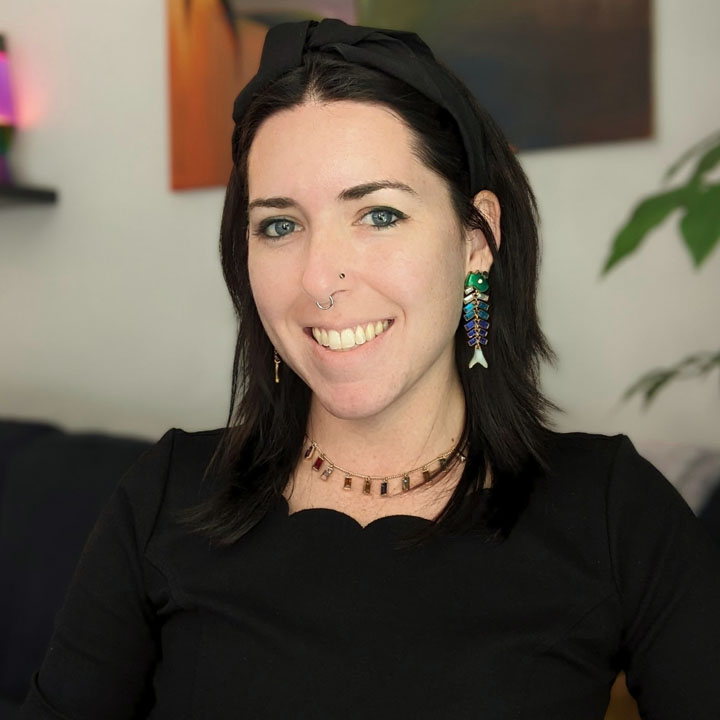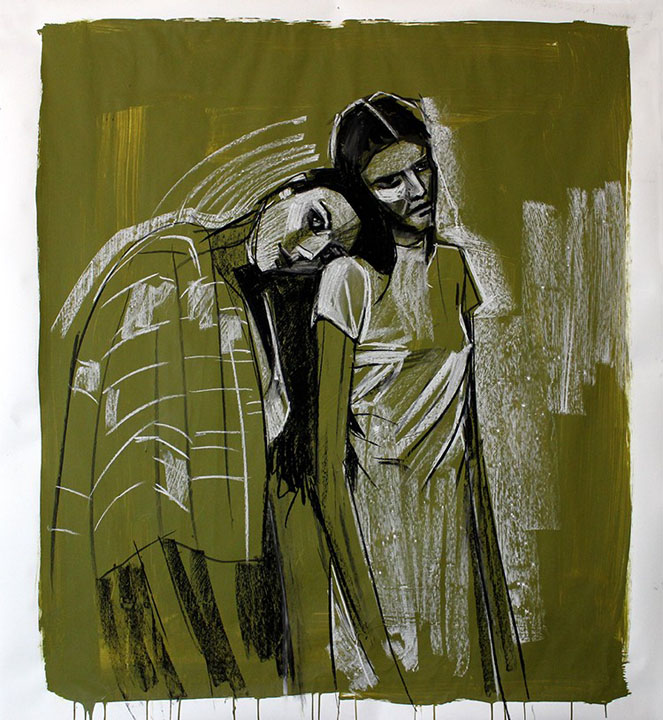
Anya Kavanaugh '20 (they/them) is a neurodivergent, trans/non-binary art therapist, clinical supervisor, and founder of NQ Therapy, Inc. They specialize in working with neurodivergent and LGBTQIA+ individuals through trauma-informed, strengths-focused, and creative approaches. Anya’s work centers on helping clients unpack internalized shame and connect with their authentic selves. They are passionate about fostering spaces where both clients and clinicians can show up fully, honoring the fluidity of identity and the healing power of creativity and community.
How did you first discover Art Therapy, and what inspired you to pursue this field?
My discovery of art therapy was deeply connected to my own processing needs, even before I fully understood them. As an autistic and ADHD person with sensory integration differences, art was one of the few tools that allowed my nervous system to express itself freely, despite environments that often tried to suppress or control that expression. Art became a safe and expansive space where I could process, feel, and make sense of the world. I pursued art therapy because I wanted to help others—especially those who feel silenced or misunderstood—find that same freedom and self-connection.
As a mental health clinician/advocate, can you describe your work and how you integrate the arts into your work?
I work with neurodivergent and queer individuals to unpack toxic internalized shame rooted in white, cis-het, neuronormative supremacy and oppression. Art is central in this process, offering clients a way to process experiences, regulate their nervous systems, and explore identity in non-linear, intuitive ways. Creativity allows clients to access parts of themselves beyond language, making space for what’s been hidden or silenced. This work also requires ongoing self-reflection and unlearning on my part—knowing my own shames and patterns so I can help others uninstall theirs. The art-making process mirrors this constant state of curiosity, discovery, and radical self-compassion.
Reflecting on your time at LMU, what experience or moment stands out as particularly valuable to your personal and professional growth?
What stands out most was the sense of permission to exist authentically and to begin shaping my own art therapy identity and style. That experience became the foundation for a career-long practice of honoring the fluidity of both personal and clinical identity. I learned that it’s okay—even necessary—to evolve, and that modeling this ebb and flow helps clients feel safe in their own ongoing processes. Like waves in the ocean, identity, pain, and healing are all in motion. LMU helped me lean into that truth, and that lesson continues to guide my work today.
Can you walk us through your professional journey since graduating, including any key milestones or turning points?
I began working at a DMH site just two months after graduating, during the height of the pandemic shutdown. I quickly realized that my processing style and capacity didn’t align with the demands of that system. That challenge taught me to lean into my strengths and move into private practice, where I had room to grow into myself as a clinician. In private practice, I began working with neurodivergent and queer clients, and through that parallel process, I came out as autistic and trans/non-binary. Being one of the few openly neurodivergent and queer clinicians in the area helped me build my practice—but it also felt isolating. That inspired me to found a group practice, employing neurodivergent and queer therapists and creating space for authenticity, community, and lived-experience-informed care.
What advice would you offer to students who are just starting their journey in this field, and what key skills or mindsets do you believe are most important for success?
Stay curious—about your clients and about yourself. This work requires constant self-reflection and the willingness to unlearn what systems of white, cis-het, neuronormative supremacy have taught us. Know your own shames so you can help others release theirs. Let both your personal identity and clinical identity evolve over time. Build community and seek mentorship with people who support your full self. Flexibility, humility, and self-compassion are crucial. And finally, protect your creativity and joy—they are not extra; they are essential fuel for sustainable, meaningful work.

